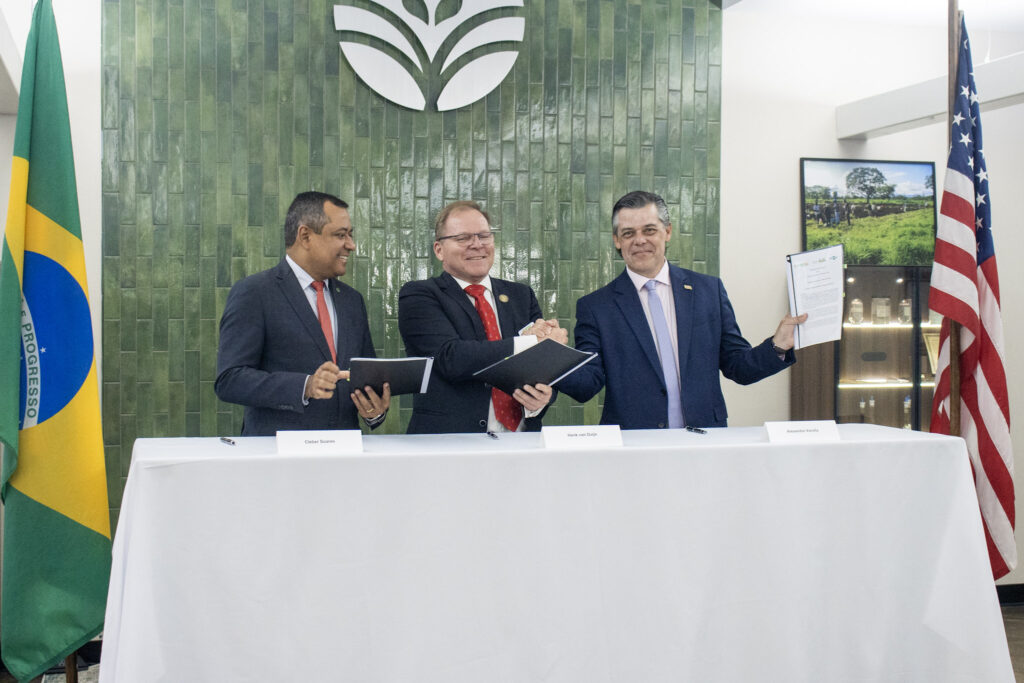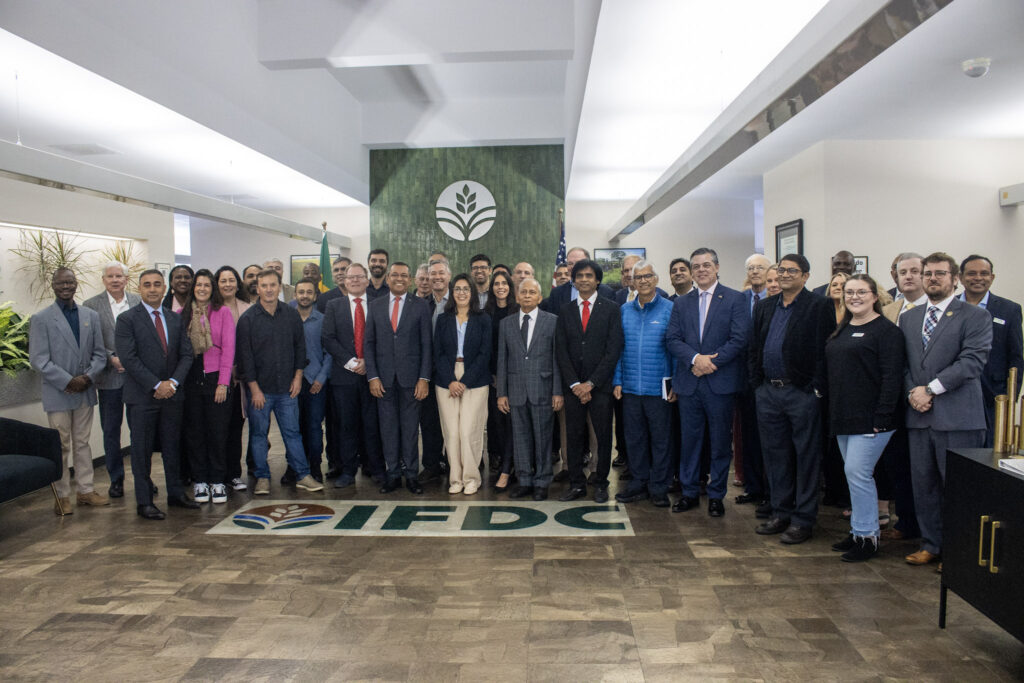
This news article is a translation of an article originally published by MAPA on their website.
From October 28 to 30, representatives from the Ministry of Agriculture and Livestock (MAPA) in Brazil visited the United States on a mission aimed at developing fertilizer technologies. The highlight of the technical visit was the signing of a memorandum of understanding (MOU) with the International Fertilizer Development Center (IFDC) in Muscle Shoals, Alabama.
The partnership brings together EMBRAPA, MAPA, and representatives of Brazilian research and universities, such as the University of São Paulo (USP) and the Federal University of Viçosa (UFV), as well as Petrobras, with a view to innovation and sustainability in the sector.
“The partnership with IFDC is an essential step toward strengthening innovation in fertilizers and boosting Brazilian agriculture in a sustainable way.”
Cleber Soares, Mapa Deputy Executive Secretary
The MOU establishes a strategic collaboration between the institutions to explore technologies that increase fertilizer efficiency and promote sustainable agricultural practices. Founded in 1974, IFDC is a global reference point in solutions for food security and reducing environmental impact, operating in more than 100 countries. This cooperation strengthens Brazil’s National Fertilizer Plan (NFP) by reducing external dependence and promoting sustainable agricultural practices.
During the mission, the Brazilian delegation took part in several meetings with the Indian delegation, including representatives of Indian fertilizer companies and innovation sectors, promoting the exchange of knowledge and technologies.
The delegation was made up of MAPA’s Deputy Executive Secretary, Cleber Soares; MAPA’s Secretary for Agricultural Policy, Guilherme Campos; the Executive Secretary’s Advisor, José Carlos Polidoro; the coordinator of EMBRAPA’s Labex program in the United States, Alexandre Varella; and the Agricultural Attaché from the Embassy of Brazil in the United States, Ana Lúcia Viana.
As well as signing the MOU, the mission included visits to IFDC’s laboratories and innovation facilities, where new approaches to increasing fertilizer efficiency were discussed and the capabilities of the organization’s pilot plant were examined. The program included talks on food safety and international collaboration, with the participation of Indian companies and IFDC.

“The partnership with IFDC is an essential step toward strengthening innovation in fertilizers and boosting Brazilian agriculture in a sustainable way. This advance reinforces our commitment to food security and reducing external dependence, placing Brazil at the forefront of modern and sustainable agricultural practices,” said Deputy Executive Secretary Soares.
MEETING AT THE EMBASSY
The mission ended on October 30 with a panel entitled “Global Collaboration for Sustainable Food Security: An Integrated Path to Environmental Preservation,” held in the auditorium of the Brazilian Embassy in Washington, D.C. Moderated by Agricultural Attaché Viana, the event brought together representatives from MAPA, EMBRAPA, IFDC, the United States Department of Agriculture (USDA), and Petrobras, who discussed policies for more efficient and sustainable agriculture aligned with environmental preservation. Among the topics discussed were environmental preservation policies integrated with food security and the importance of international collaboration to mitigate environmental impacts on agricultural production.
At a previous meeting with the Brazilian Ambassador to the United States Maria Luiza Viotti, relevant topics for cooperation between MAPA, EMBRAPA, and IFDC were discussed. The dialogue focused on initiatives aimed at sustainability, including the program to recover degraded pastures and the role of Petrobras in developing sustainable technologies for agriculture. The global importance of tropical agriculture was also highlighted, reinforcing Brazil’s commitment to sustainable agricultural practices and advancing food security in the world.




